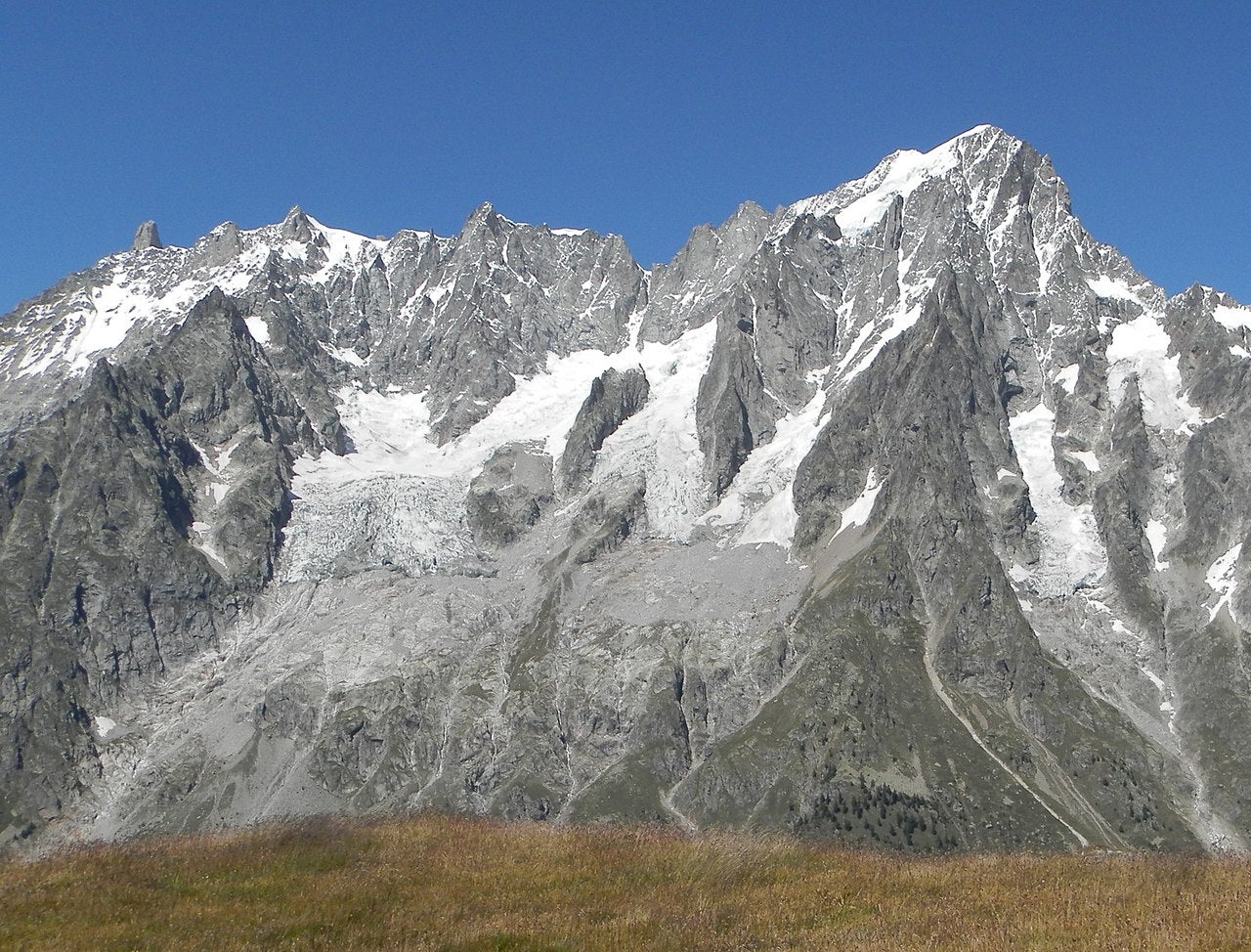Evacuations ordered as Mont Blanc glacier on brink of collapse
Italian prime minister says faster movement of Planpincieux glacier highlights climate crisis

Your support helps us to tell the story
From reproductive rights to climate change to Big Tech, The Independent is on the ground when the story is developing. Whether it's investigating the financials of Elon Musk's pro-Trump PAC or producing our latest documentary, 'The A Word', which shines a light on the American women fighting for reproductive rights, we know how important it is to parse out the facts from the messaging.
At such a critical moment in US history, we need reporters on the ground. Your donation allows us to keep sending journalists to speak to both sides of the story.
The Independent is trusted by Americans across the entire political spectrum. And unlike many other quality news outlets, we choose not to lock Americans out of our reporting and analysis with paywalls. We believe quality journalism should be available to everyone, paid for by those who can afford it.
Your support makes all the difference.An enormous glacier on the Italian side of Mont Blanc, Europe’s highest mountain, is at risk of collapse, causing authorities to close roads and evacuate Alpine huts.
A piece of the Planpincieux glacier containing 250,000 cubic metres of ice could fall down the mountain, the mayor of nearby town Courmayeur, Stefano Miserocchi said, after experts found the sheet of ice was moving much faster than normal.
Mr Miserocchi has ordered the closing of two roads and the evacuation of huts on the mountain, which is 4,810 metres (15,780 feet) high, after experts said the glacier was threatening part of the Ferret Valley.
Between the end of August and the beginning of September, the lower part of the glacier was sliding at a speed of 50-60cm per day.
The glacier, which hangs over a precipice southeast of the mountain’s summit, is over a kilometre square, and has been closely monitored since 2013. During the summer months, it had previously moved at a rate only occasionally exceeding 30cm a day.
“These phenomena show once more how the mountain is experiencing a period of great changes due to climate factors, so it is especially vulnerable”, Mr Miserocchi said.
He said there was no immediate risk to residential areas.
The warning prompted Italian prime minister Giuseppe Conte to mention the increased risks the climate crisis poses during an address at the UN general assembly on Wednesday.
“News that a glacier on Mont Blanc risks collapsing is a warning that can’t leave us indifferent, it must shake us up and we have to mobilise,” he said.
But experts have said there is no way of knowing exactly when the glacier will collapse, and there is no warning system in place.
Italy’s Fondazione Montagna Sicura (Safe Mountain Foundation) wrote on Facebook: “From 19.30pm today, the municipal road of Val Ferret will be closed – between the locations Montitaz and Planpincieux – and the road for the location for the potential glacial risk linked to the glacier of Planpincieux.”
Across the Alps, there is concern warmer temperatures are increasing the danger of melting permafrost and disappearing glaciers.
The World Meteorological Organisation warned in a new report released this week that if average temperatures continue to rise at current levels, the ice in the eastern and central areas of the Alps could disappear completely within two or three decades. Year-round glaciers would remain only in the western Alps, which are the tallest part of the mountain range.
Additional reporting by Reuters
Join our commenting forum
Join thought-provoking conversations, follow other Independent readers and see their replies
Comments